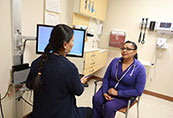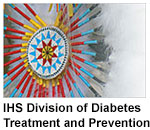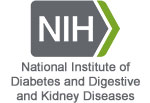Diabetes Standards of Care and Resources for Clinicians and Educators
Weight Management, Overweight, and Obesity
Obesity and overweight, increasingly prevalent risk factors among American Indian and Alaska Native people with diabetes, increase insulin resistance, and raise blood glucose levels. In turn, they exacerbate diabetes complications and make diabetes management more complex. Therapeutic lifestyle changes designed to achieve weight loss are the core components of weight management counseling, and are essential for managing diabetes and its comorbidities.
Resource Links
Diabetes Care Topics
Recommendations At-a-Glance
for All Topics
for All Topics
» Online version
» Print version [PDF – 269 KB]











